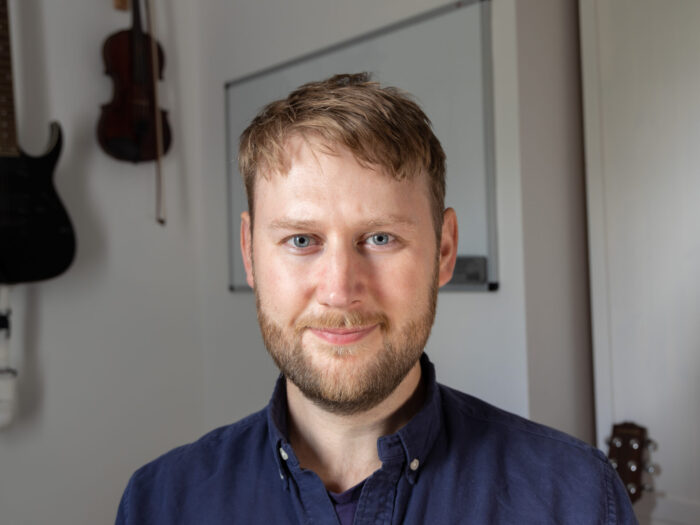LIFD Early Career Researcher Spotlight: Robin Furze
Thesis title: Predicting Friction in Total Joint Replacement Bearings
School/ Faculty: CDT in Fluid Dynamics, School of Computing
Supervisors: Dr Greg de Boer, Prof Peter Jimack, Dr Mazen Al-Hajjar, Prof Michael Bryant
Tell us a bit about yourself:
I’m in the second year of the Fluid Dynamics CDT programme and the first year of my PhD research. I originally completed my undergraduate degree in theoretical physics at Leeds before taking a diversion into the accounting profession. Later, I returned to complete my MSc in Medical Engineering at Leeds before starting my PhD.
Still living in Leeds with my wife, Carly, I was fortunate that the CDT programme was available close to home. Having been outside academia for several years, the CDT was the perfect platform for getting training and opportunities for exploring potential areas for research. I pursued my master's degree because of a desire to return to academia and learn how engineering is applied in modern medicine. Ultimately, this interest has flowed through to my PhD research, where I can use all the skills I’ve developed throughout my career.
What is your research about?
When designing new hip implants, we need to measure the friction at the interface of the articulating surfaces as part of assessing their performance. This can be done experimentally, but making accurate predictions based on design geometry, material properties, and microscale surface profiles is challenging. This is because hip implants will typically operate in the mixed lubrication regime, where the fluid dynamics of the lubricant and interactions of microscale solid features occur. The regime is fundamentally a multi-scale fluid-structure interaction problem. My research seeks to develop a multi-scale computational model that will accurately predict the friction in hip replacement bearings, providing more useful performance data before physical simulations are performed.
What did you wish you knew before starting a PhD?
One of the reasons I did not pursue a PhD when I first left the University was a fear that it would be a very isolating experience - this has not been the case. Although the research is my own, I have a wide support network, from supervisors to peers. So, even though the work can be hard, there is always someone to bounce ideas off.
I also wish I had realised how much you must be willing to try new ideas and fail. Leaving a setting where there is almost always a correct answer and standard methods to approach a problem, it can be a little overwhelming to develop creative approaches to solving problems that may not have solutions. It becomes important to get comfortable with knowing that you can't always be right!
What are your plans for the future?
I am still early in my PhD so I do not have firm plans for the long term. I expect my interests will develop further over the next few years, so I may stay in academia or pursue a career in the industry. The common thread in my career has been problem-solving, so I expect whatever I do next will be something with variety where I can utilise my skills to address problems I am motivated by.

